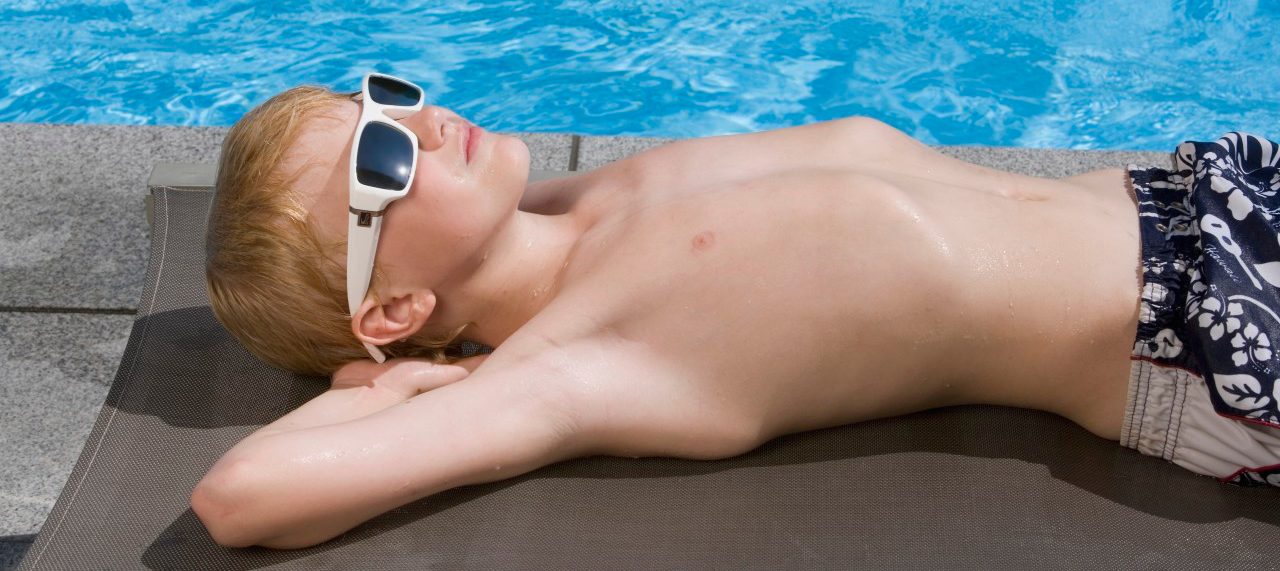When Your Child Might Be Lying

We tend to overestimate our ability to catch fibs. Here's how to tell when your child might be lying.
As parents we all want to think our kids are trustworthy, and also that we can read them like a book. We know that kids fool their parents, but still can’t believe it could happen in our own homes.
The truth is that we’re wearing rose-colored glasses. Love can indeed be blind. In one study, even after children were referred to an obesity clinic, nearly a third of their parents thought their health was excellent and their weight wasn’t a problem. Another study found that parents are not especially good at catching their children in lies.
YOU MIGHT ALSO LIKE: The Truth about Lying
The researchers recruited adults to watch several video clips, each of a child between the ages of 8 to 16, answering questions about whether she had cheated on a test. All the children denied it, and some were lying. Parents with children in that age range watched the clips, deciding after each video whether the child was lying and rating their confidence in their assessment. Separately, 80 parents watched a single clip of their own children in the same scenario. For comparison purposes, college students without children also performed the exercise.
You’d guess that parents would be more accurate, especially when judging their own kid. Wrong.
All the adults, including the non-parents, were right just slightly more than half the time, and people in general were 70 to 76 percent confident in their accuracy. The participants also tilted in favor of thinking the children were telling the truth.
Catching liars isn’t easy even for professionals. Judges, for example, do poorly when asked to pick out which person is lying in a videotaped scene. One reason is that people don’t consistently behave in ways that betray a lie. Fidgeting, blinking, pausing, looking away, or avoiding eye contact are all signs of un-ease, but not necessarily lying. Some liars show those signs and some don’t, says world-renowned psychologist Paul Ekman, author of “Emotions Revealed: Recognizing Faces and Feelings to Improve Communication and Emotional Life.” Truthful people can behave uneasily because they’re under suspicion.
Liars may be less forthcoming and tell less interesting tales, psychologist Bella DePaulo and her coauthors concluded in a research overview. Still, you can’t assume you will reliably notice the difference, especially with your own child. “When we become friends, lovers, or parents, we become blind,” Ekman says.
What if the other parent may be lying as well? Sticky waters indeed, but if it’s an important issue — criminal activity comes to mind — you again need to look for facts. Perfect strangers can beat romantic partners at detecting each other’s lies, DePaulo notes in her book “Behind the Door of Deceit.”
YOU MIGHT ALSO LIKE: Lying and Stealing
It turns out that you shouldn’t ignore an intuition that your child is lying, if the issue is important. Get the facts. The same goes when your children come under question and you’re sure they’re innocent and telling the truth — grit your teeth and investigate.
But don’t worry about small fibs. That’s normal. Children begin lying around two-and-a half or three to cover up misdeeds. In a 2002 study, 54 percent of 3-year-olds lied about peeking, and more than three-quarters of kids aged 4 to 7 did.
Punishing a child for lying backfires because next time they’ll work harder at lying more successfully. A better strategy is to praise honesty. Kang Lee, a developmental psychologist at the University of Toronto, and his team compared the effectiveness of four classic moral stories in promoting honesty in 3- to 7-year-olds. Surprisingly, the stories of “Pinocchio” and “The Boy Who Cried Wolf,” which show the downside of lying, failed to reduce lying in children. But the story of “George Washington and the Cherry Tree,” in which George wins praise for his honesty, significantly increased truth telling. When the George Washington story – ironically a lie itself – was altered to focus on the negative consequences of dishonesty, it too failed to promote honesty.
If you need to get an answer out of a small child you might say upfront, “Promise me you’ll be honest.” One study found that 3- to 7-year olds were 16 percent less likely to lie after making the promise. They’re little!
However, you need to keep your promises, too. You’re asking for trouble if you promise not to get angry at the truth — and then get angry. But parents do that a lot, according to Lee, and it teaches children to lie. Be realistic: If the misdeed in question is bound to make you furious, don’t promise otherwise. A better strategy is to say that you’ll be proud of them for telling the truth, and when they do so, commend their honesty. You can then express your feelings about the misdeed.
Updated:
February 27, 2020
Reviewed By:
Janet O’Dell, RN